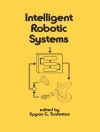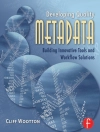The first comparative examination of planning paradigms
This text begins with the principle that the ability to anticipate
and plan is an essential feature of intelligent systems, whether
human or machine. It further assumes that better planning results
in greater achievements. With these principles as a foundation,
Planning in Intelligent Systems provides readers with the tools
needed to better understand the process of planning and to become
better planners themselves.
The text is divided into two parts:
* Part One, ‘Theoretical, ‘ discusses the predominant schools of
thought in planning: psychology and cognitive science,
organizational science, computer science, mathematics, artificial
intelligence, and systems theory. In particular, the book examines
commonalities and differences among the goals, methods, and
techniques of these various approaches to planning. The result is a
better understanding of the process of planning through the
cross-fertilization of ideas. Each chapter contains a short
introduction that sets forth the interrelationships of that chapter
to the main ideas featured in the other chapters.
* Part Two, ‘Practical, ‘ features six chapters that center on a
case study of The Netherlands Railways. Readers learn to apply
theory to a real-world situation and discoverhow expanding their
repertoire of planning methods can help solve seemingly intractable
problems.
All chapters have been contributed by leading experts in the
various schools of planning and carefully edited to ensure a
consistent high standard throughout.
This book is designed to not only expand the range of planning
tools used, but also to enable readers to use them more
effectively. It challenges readers to look at new approaches and
learn from new schools of thought. Planning in Intelligent Systems
delivers effective planning approaches for researchers, professors,
students, and practitioners in artificial intelligence, computer
science, cognitive psychology, and mathematics, as well as industry
planners and managers.
Tabela de Conteúdo
Contributors ix
Preface xi
1 Introduction 1
Wout van Wezel and René Jorna
Part I: Theoretical 23
Introduction to Chapter 2 25
2 How We Do What We Want: A Neurocognitive Perspective on Human Action Planning 27
Bernhard Hommel
Introduction to Chapter 3 57
3 Planning in Dynamic Situations: Some Findings in Complex Supervisory Control 61
Jean-Michel Hoc
Introduction to Chapter 4 99
4 Cognition, Planning, and Domains: An Empirical Study into the Planning Processes of Planners 101
René Jorna
Introduction to Chapter 5 137
5 Coordination Mechanisms in Multi-Actor Systems 139
Henk W.M. Gazendam
Introduction to Chapter 6 175
6 The Organizational Interconnectivity of Planning and Scheduling 177
Kenneth N. Mc Kay and Vincent C.S. Wiers
Introduction to Chapter 7 203
7 Interactive Scheduling Systems 205
Wout van Wezel
Introduction to Chapter 8 243
8 Mathematical Models for Planning Support 245
Leo G. Kroon and Rob A. Zuidwijk
Introduction to Chapter 9 279
9 Modeling and Solving Multisite Scheduling Problems 281
Jürgen Sauer
Introduction to Chapter 10 301
10 Multi-Agent Planning in the Presence of Multiple Goals 303
Michael H. Bowling, Rune M. Jensen, and Manuela M. Veloso
Introduction to Chapter 11 327
11 Multiresolutional Representation and Behavior Generation: How Does It Affect the Performance of and Planning for Intelligent Systems 329
Alexander Meystel
Part II Practical 365
12 Perspectives on Shunting Planning: Research in Planning Support at the Netherlands Railways 371
Wout van Wezel and Derk Jan Kiewiet
13 Task Analysis for Problems of Shunting Planning within the Netherlands Railways 377
Derk Jan Kiewiet, René Jorna, and Wout van Wezel
14 Intelligent Shunting: Dealing with Constraints (Satisfaction) 391
Erwin Abbink
15 Applying Operations Research Techniques to Planning of Train Shunting 415
Ramon M. Lentink, Pieter-Jan Fioole, Leo G. Kroon, and Cor van’t Woudt
16 Train Shunting: A Practical Heuristic Inspired by Dynamic Programming 437
R. Haijema, C.W. Duin, and N.M. van Dijk
17 Planner-Oriented Design of Algorithms for Train Shunting Scheduling 477
J. Riezebos and Wout van Wezel
18 Conclusions for Intelligent Planning: Diversity and the Quest for Unity 497
René Jorna, Wout van Wezel, and Alexander Meystel
References 531
Index 565
Sobre o autor
WOUT VAN WEZEL, PHD, is Assistant Professor of Production System Design, Faculty of Management and Organization, University of Groningen, The Netherlands. His research interests include planning and scheduling, human-centered decision support systems, and production control.
RENÉ J. JORNA, PHD, is Professor of Knowledge Management and Cognition, Faculty of Management and Organization, University of Groningen, The Netherlands. His research activities focus on knowledge representation, planning and scheduling, semiotics, knowledge management, and sustainable innovation.
ALEXANDER M. MEYSTEL, PHD, is Professor in the College of Engineering, Drexel University. His research centers on intelligence control, autonomous robots, learning systems, computer architectures for cognitive machines, and manufacturing, as well as the theory of knowledge representation.












